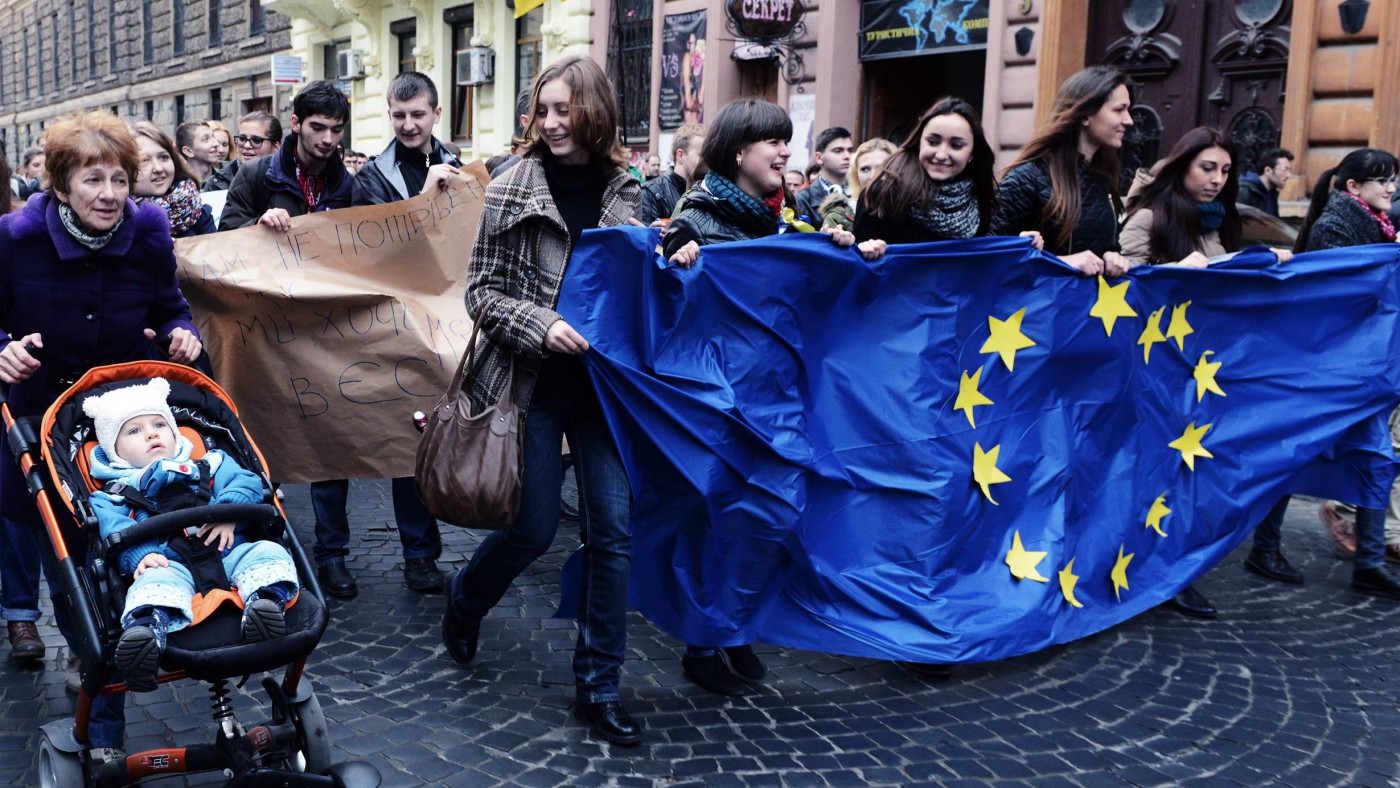The federalist vision of Europe is a grand ambition of EU fanatics, but it needs to win over hearts and minds to succeed. Where better to start than through the impressionable minds of the young? This is why the EU runs a propaganda campaign which – among other things – brainwashes kids with glossy brochures claiming the Euro is a triumph. It is all paid for by British taxpayers. This is EU self-promotion at your expense.
By aiming at children, they clearly aim at indoctrination from a very young age. No other rational people would believe these starry eyed visions of ‘EU success’. This, if anything, shows their desperation – and more importantly, their failure. With a €3.3 billion budget for ‘communications’, the EU spends more than Coca-Cola on advertising. While the EU complains about propaganda from Russia – they mean popular news agencies like Russia Today – Brussels also engages in the most shameful form of indoctrination.
This should surprise no one. Young people are more easily impressionable than adults. The EU’s Information and Communication Plan of 2014 lists young people as one of three key target audiences, which includes national and local media as well as beneficiaries of EU funds.
The overarching message the EU wants to convey to young people is: “The European Union invests in the future of your region. EU funding helps to create jobs and other opportunities” (stated in the Communication Plan). Little do young people know, the EU doesn’t grow the money in a plantation, but actually extracts it from European taxpayers like us Britons to spend as they see fit. Young people don’t realise this, but will see the EU as a generous patron which prioritises their future. If young people feel neglected by their government, as many do in Britain, they will direct their blame to the government of the day while Brussels completely escapes criticism, despite wielding more power than our national government.
The EU also launches propaganda disguised as fun and joyous activities. ‘Europe in Harmony’, for example, involves people recording themselves singing the EU anthem, Beethoven’s ‘Ode to Joy’, and submitting their rendition to win a prize. This is a clever trick; the EU would not get away with coercing students to sing the EU anthem at school every day. By making it a ‘competition’, they add an element of excitement to what would otherwise be a tedious and boring activity. It also normalises the EU as a country they are a citizen of, to which they can pledge allegiance.
Captain Euro is a particularly absurd example of EU propaganda, a superhero who is the European equivalent of Captain America and has his own online comic strip. In one of the panels, Captain Euro is on the phone with David Cameron encouraging him like a horse whisperer, to say the F-word – ‘federalism’. Once Cameron overcomes his internal demons to say the word, he is made to realise federalism ‘doesn’t mean to centralise power or lose sovereignty’, instead it ‘means to share power efficiently between the centre and its parts, for the benefit of the whole’. Thanks, Captain Euro.
The EU’s ambitions are wider than just indoctrinating young minds. After a particularly low turnout in the EU Parliament elections in 1999, the European Economic and Social Committee (EESC) expressed its alarm at the ‘democratic disenchantment’ with Europe. So a European Commission (EC) paper co-written by EC Vice-President, former EU Commissioner as well as former Leader of the Labour Party Neil Kinnock, has also outlined how non-governmental organisations (NGOs) should be recruited to promote ‘ever closer union’:
‘By encouraging national NGOs to work together to achieve common goals, the European NGO networks are making an important contribution to the formation of ‘European public opinion’ – usually seen as a pre-requisite to the establishment of a true European political entity.’ The paper goes on to say working with NGOs ‘contributes to promoting European integration in a practical way and often as grassroots level’, as well as ‘to ensure that information on the European Union and EU policies reaches a wide audience.’
The EU freely admits 20% of its own budget is channeled to businesses and organisations. By funding these groups, the NGOs feel obligated to propagate a pro-EU narrative, and even promote EU policies. Environmental NGOs are a particularly appealing target to grant EU funds. Friends of the Earth (Europe) enjoys €1,195,259 of EU funds, accounting for almost half its budget. The European branch of the International Lesbian, Gay, Bisexual, Trans and Intersex Association, gets 62% of its budget from EU funds. The list is goes on…..
Article 406 of the Education Act 1996 forbids any political indoctrination in schools. Yet the EU still manages to poke its head into our classrooms in order to solidify a European identity. While these projects aimed at the young (a key target group for EU fanatics) are not all sinister and manipulative, they have the potential to sway the young into believing they are first and foremost an EU citizen, thereby stifling their original national identity.
When the EU is wining and dining journalists and politicians, it reveals the ‘Euro integrationist’ vision is by no means a spontaneous and natural order. What they realise is that it can only be imposed ‘top down’ by an undemocratic elite, because there is scarcely any public appetite for a United States of Europe. Democracy is derived from the Ancient Greek demos ‘people’ and kratos ‘power’ – people power. Without a ‘people’ as a political unit, a European demos, we are only left with kratos – pure naked power.
It is no wonder we are witnessing economic and social crises across the continent. There is a clear difference between education and propaganda. Get Britain Out believes the EU more often leans towards the latter, and the quicker we can get out of the EU, the better for Britain.


